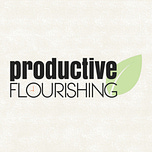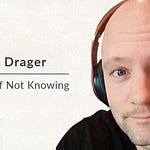Today’s show features Andrea Owen, proud author of 52 Ways to Live a Kick-Ass Life and How to Stop Feeling Like Shit: 14 Habits That are Holding You Back From Happiness. Andrea joins Charlie today to talk about the habits and shame stories that hold us back from success. In this episode, they discuss how our stories, habits, and coping mechanisms lead us further away from being able to catch ourselves in the moment. **Disclaimer: this episode contains cable-friendly language, so be conscious of where and when you are listening.
Key Takeaways:
[2:40] - Her second book was a bit of a deviation from her first book, focusing on a different sort of pain point. The subject matter for the second book sort of found her, but she also listened to feedback from her clients, women in her community, and herself about things that they were struggling with. She started to notice and observe patterns and behaviors in her life and in those around her.
[6:00] - Sometimes when writing a book you notice things that come up for you that you may not have been aware of before. Andrea originally thought she didn’t struggle with imposter complex (attributing success or accomplishments to luck or connections), but through the process of writing her book she realized that she did.
[7:18] - Men and women experience imposter syndrome differently; women often experience the social aspect of being invested in what other people think as well as the competency aspect. Men don’t experience the social aspect quite as much. Charlie and Andrea talk about some of the consequences of these experiences, specifically when it comes to leadership. Andrea shares a specific example of one of her clients and how she perceived a situation in her annual review versus how a man might perceive the same situation.
[13:25] - In cases like Andrea’s client, sometimes this can open doors to having hard conversations that may be awkward, but could help clarify the situation. The conversations don’t automatically need to be confrontational - healthy communication will never go out of style.
[17:37] - Out of the 14 habits featured in her book, one of the most common that comes up is isolating and hiding out. This is when we’re in crisis or in some kind of struggle, and we think about reaching out to someone for help but we allow our self-talk to convince us we don’t need to tell anyone. Sometimes it’s because we’re ashamed of our personal struggle, or we’re worried about being a burden to someone else. These traits are very common, along with numbing out.
[22:10] - As soon as we get uncomfortable, we start building and adding steps to get away from the discomfort. This can form a spiral where we become busy to avoid something and then when we’re ready to handle it, we’re too busy. Sometimes you have to strip those things away and just sit with the discomfort (or shame, boredom, or other emotion) and allow yourself to experience it and decide what you’re going to do with it. Sitting with these emotions can allow you to discover what you’re really avoiding.
[24:15] - Discomfort isn’t the problem; it’s the feeling that we shouldn’t be uncomfortable that’s the problem. As we allow ourselves to experience the discomfort, we begin to expand our comfort zones. When we are presented with more challenges, we can choose to coast through, or embrace the challenge and grow to the next level.
[26:48] - Charlie and Andrea discuss post-accomplishment depression. People may experience this after they reach a big goal they’ve been working toward. This affects how people feel about themselves, and often prevents them from talking to others about it.
[29:45] - When we participate in behaviors like perfectionism, control, people-pleasing, etc, we’re allowing shame to be the ringleader. We manifest those habits to avoid shame, when we’re actually allowing it to control us. The win Andrea wants for people is to know - when you’re in that moment - that you’re doing something because of a shame trigger, and realign yourself to how you really want to be showing up in that moment.
[32:52] - We want to shine the light on things that are uncomfortable, and focus on aspects of ourselves that we think are unloveable. Focus on one thing at a time - don’t try to tackle it all at once.
[36:02] - We often praise busyness and busy work, but it’s important to focus on one virtue at a time. With personal mastery and personal growth, trying to work on too many aspects at once will probably end up resulting in less growth.
[38:45] - A lot of our habits are rooted in self-talk, and our self-talk is our shame manifesting itself. Our shame and our self-talk help create our core beliefs. Focus on the way that you speak to yourself and how you compare yourself to other. Start there and allow it to bleed out into any of the other things you want to work on.
[42:00] - Getting into a relationship with someone is a great way to figure out your triggers. Andrea shares an example of a time she and her husband got into an argument, and she found that it was easier to go to a place where she was planning a single life, rather than facing what she needed to own from the argument and discovering what the triggers were.
[44:25] - Sometimes when we’re triggered and feeling uncomfortable, the first thing we do is look for the places where we can find control. We can notice and observe certain behaviors to use as red flags for when we’re feeling a certain way. The trick becomes using those indicators to hack your way back into what’s actually going on. Charlie talks about the HALTS (hungry, angry, lonely, tired, and sick/stressed) behaviors as common indicators. When we do lash out, it’s important to own it.
[50:30] - Sometimes when writing books, authors will write portions for themselves. For Andrea, some of the habits she can most relate with are control, overachieving, and being strong. She briefly describes her struggle with these habits.
[54:20] - Andrea’s invitation/challenge is to really admit when you have screwed up - in a friendship, at work, or a romantic relationship. Instead of placing blame or making excuses to defend yourself, pause and take ownership and apologize to get a conversation started. Those are some huge and hard lessons, but they will help build trust and connections that can foster a new level of intimacy in any type of relationship.
Mentioned in This Episode:
52 Ways to Live a Kick Ass Life, by Andrea Owen
How to Stop Feeling Like Shit, by Andrea Owen
Fierce Conversations, by Susan Scott
The New One Minute Manager, by Ken Blanchard
TouchPoints, by Douglas Conant & Mette Norgaard












